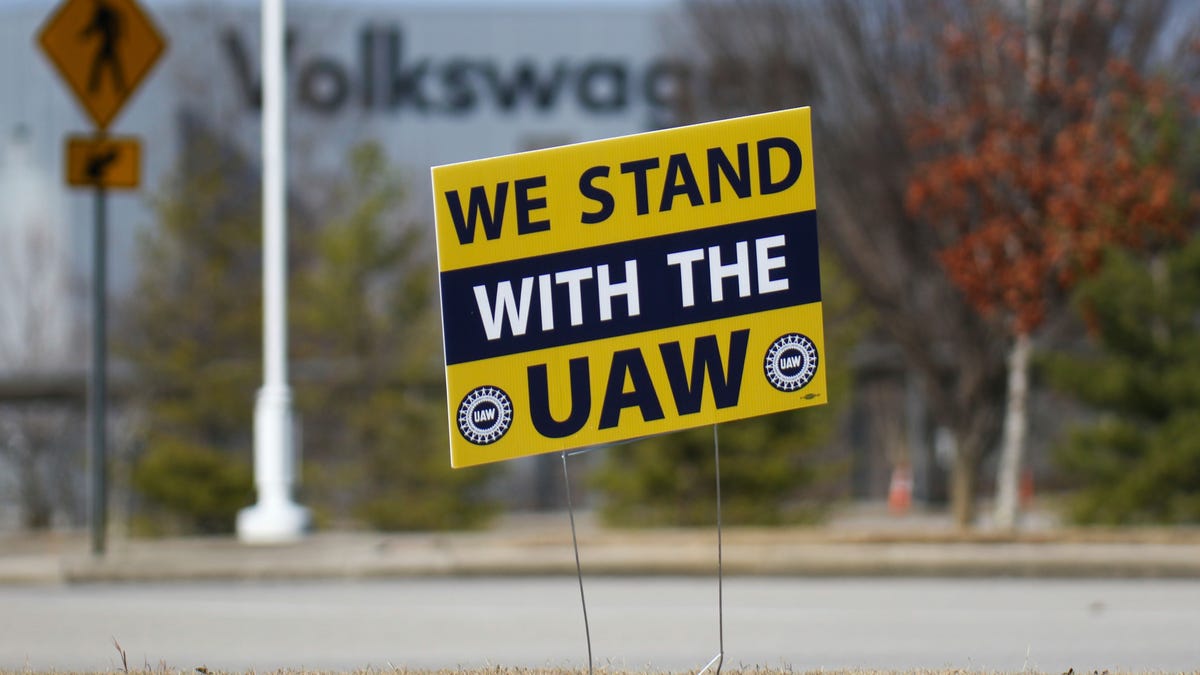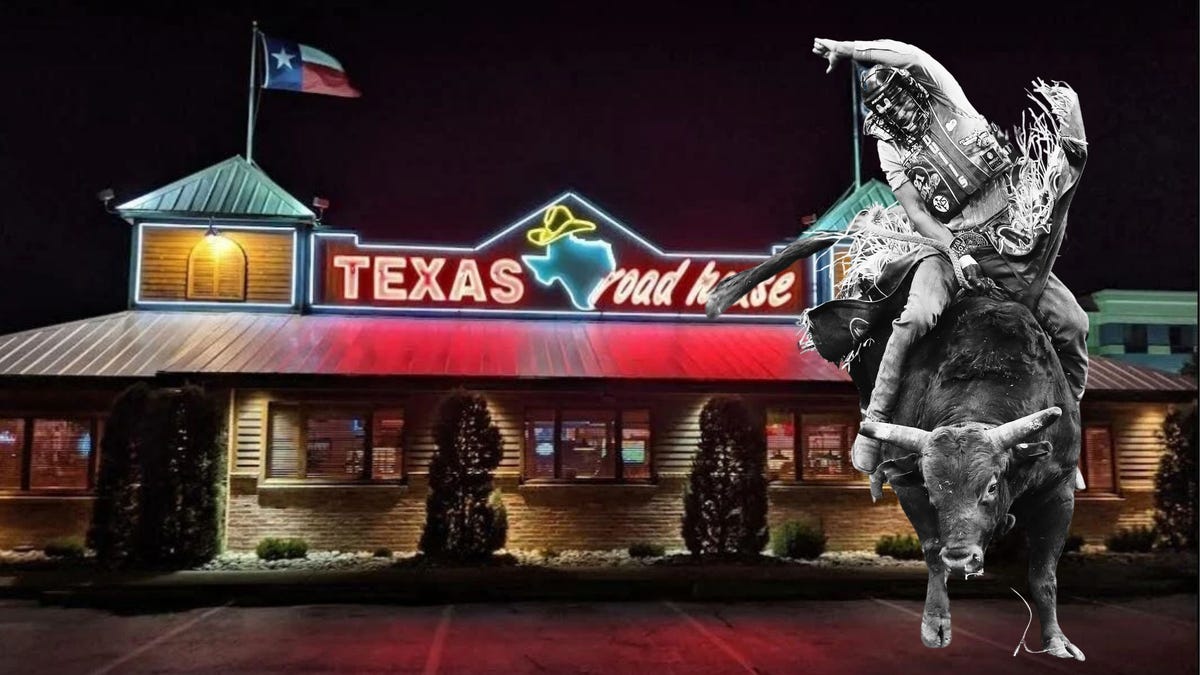Kansas
Kansas is poised to expand tax credit for helping disabled workers after debate over low pay

Kansas is poised to expand an income tax credit for goods and services purchased from companies and nonprofits employing disabled workers, a year after a debate over how much the state should buck a national trend against paying those workers below the minimum wage.
A bill approved by the Legislature this week with broad bipartisan support would increase the total tax credits available from $5 million a year to $8 million. It also would create a new, $1 million program for nonprofit groups running vocational programs known as sheltered workshops to help them start paying workers at least the federal minimum wage of $7.25 an hour.
The tax credit had previously only covered purchases from employers paying at least the minimum wage, and lawmakers reviewed it last year because it was set to expire at the start of this year.
It’s the Legislature’s latest attempt to expand the tax credit.
Their first proposal would have allowed nonprofit groups with sheltered workshops to form separate divisions paying at least the minimum wage so that people or businesses buying from those divisions could claim the tax credit. Backers saw it as an opportunity to expand the reach of the tax credit and therefore employment opportunities for disabled workers.
But it drew strong opposition from disabled rights groups arguing that it would encourage wages below the minimum wage — a vestige of decades-old views of disabled people as incapable of doing jobs outside such programs.
The compromise last year was to start the grant program instead. However, the Republican-controlled Legislature folded it into an omnibus tax-cut bill with provisions opposed by Democratic Gov. Laura Kelly, and she vetoed it.
The tax credit then expired at the start of this year, but this year’s bill is written so that people can still claim the tax credit when they file their 2023 returns.
“It’s a good compromise,” said Neil Romano, a member of the National Council on Disability, and former head of the U.S. Department of Labor’s Office of Disability Employment Policy. “It moves us towards where we want to be.”
Kelly hasn’t said publicly whether she will sign the bill, but she typically has when a measure has near-universal support.
Employers nationally are increasingly moving away from paying below the minimum wage, U.S. government data shows. Paying below the minimum wage requires a Department of Labor certificate, and a U.S. Government Accountability Office report last year said there were 2,750 American employers with certificates in 2014, while an online database listed 834 as of Jan. 1, a drop of 70%. In Kansas, 17 groups have them.
Fourteen states ban below-minimum-wage jobs for disabled workers, with Virginia enacting a law last year, according to the Association of People Supporting Employment First, which promotes inclusive job policies.
In Kansas, there remains “considerable work to be done” to move away from below-minimum-wage jobs, said Sara Hart Weir, executive director of the Kansas Council on Developmental Disabilities.
But, she added, “This is a step in the right direction.”
Rocky Nichols, executive director of the Disability Rights Center of Kansas, said it’s good that the tax credit is back and the state is signaling that it wants to move away from sheltered workshops through the grant program.
But he also said he worries the measure isn’t specific enough about how and when groups must transition away from paying below the minimum wage.
“We don’t want to see it turn into just kind of a slush fund for sheltered workshops,” he said.

Kansas
Fantastic Friday across Kansas

WICHITA, Kan. (KWCH) – Meteorologist Jake Dunne says aside from some patchy fog, it is a quiet Friday morning with wake-up temperatures in the 50s. Mainly sunny skies will lead us to a warmer afternoon as temperatures top-out in the lower 80s.
Expect even warmer (hotter?) conditions on Saturday as highs climb into the upper 80s and lower 90s. A weak cold front will sweep across Kansas on Saturday night, and while few, if any showers or storms are expected with its passage, temperatures will trend cooler on Sunday.
The frontal boundary will stall, or slowly move north setting the stage for showers and storms to erupt on Sunday. While the exact timing is uncertain, some of the storms will (most likely) be severe, producing large hail and damaging wind.
Looking ahead… the boundary may linger around the state on Monday, possibly producing another round of showers and storms before moving south on Tuesday ending the storm chances and ushering in cooler temperatures.
WICHITA AREA FORECAST:
Today: Mostly sunny and warmer. Wind: W/S 5-10. High: 82.
Tonight: Becoming clear. Wind: S 5-10. Low: 60.
Tomorrow: Mostly sunny and hot. Wind: S 5-15. High: 90.
Sun: Low: 63. High: 88. Partly cloudy; afternoon/evening storms.
Mon: Low: 65. High: 90. Partly cloudy and hot.
Tue: Low: 67. High: 79. Partly cloudy, breezy, and cooler.
Wed: Low: 55. High: 76. Mostly sunny.
Thu: Low: 58. High: 79. Partly cloudy; afternoon/evening storm chances.
Copyright 2024 KWCH. All rights reserved. To report a correction or typo, please email news@kwch.com
Kansas
MMIP Series | KSHB 41 I-Team discovers scant interest among Kansas police in MMIP training

KANSAS CITY, Mo. — Over the last two years, the KSHB 41 I-Team has investigated the MMIP (Missing and Murdered Indigenous People) crisis in our community.
It’s a national movement that highlights how Indigenous people, particularly women, face much higher rates of violence, including assault, rape, murder, and trafficking.
The I-Team covered the disappearance of Quana Big Spring, a Belton teenager, and the Independence cold case murder of Lakota Renville.
Those are two examples of how the crisis is playing out in the Kansas City area.
This is a place the public may not think is part of this nationwide epidemic.
During our investigation, we also learned Kansas lawmakers passed a bill in 2021 that offers free training to law enforcement officers on how to investigate MMIP cases, as they have certain cultural and jurisdictional aspects that set them apart.
“It was Kansas’ first step for MMIP,” Kansas Representative Christina Haswood said, a Democrat from Lawrence who co-sponsored the bill and helped it pass.
The I-Team wanted to find out just how many law enforcement agencies actually took that step.
We reached out to every one of them, more than 300 police departments and sheriff’s offices across the state. We asked how many were aware of the MMIP training and had taken the class.
The class is voluntary, not mandatory.
37 agencies responded. 27 of those were aware of the training and nine agencies had already taken it, which is 3%.
Our findings shocked and disappointed Haswood, who is one of the only Native American lawmakers in the state.
“And you said you reached out to everyone?” Haswood said when we handed her our findings. The data was compiled onto a spreadsheet.
“That really gets me fired up because we can see with your findings that there’s such a big gap of communication and education, that there’s definitely work that needs to be done,” she said.
Fighting for this training is personal to her. Many of her constituents in Lawrence are Native and represent tribal nations across the country.
“It really angers me that we come together, and we say, ‘Here are the resources that you ask [for] and can hopefully get you elevated on your knowledge,’” Haswood said. “But when it’s given voluntarily, the resources are not being used.”
Haswood says there’s a perception at the statehouse that Native Americans don’t exist. She says she has spent a lot of time explaining to other lawmakers that Native Americans don’t just live on reservations and that Native issues are still relevant today.
Another perception the I-Team noticed was multiple law enforcement agencies saying the MMIP training isn’t a high priority because they’re not close to a reservation or they don’t know of any MMIP cases.
“This is an issue that even though you might not see every day with your own eyes, it is happening, and if we continue to operate like this, when it does happen, that we don’t have a system that’s robust enough to help Indigenous peoples,” Haswood said.
Kansas is home to four tribal nations: Prairie Band Potawatomi Nation, Kickapoo Tribe in Kansas, Iowa Tribe of Kansas and Nebraska, and Sac and Fox Nation of Missouri in Kansas and Nebraska.
Although MMIP cases don’t happen as frequently in Kansas as in other part of the U.S., the issue still hits close to home for many families.
We met some of those families last spring when we visited the Prairie Band Potawatomi Nation for a MMIW walk and ceremony.
“The MMIW movement is new, but the issues are not,” one speaker said.
Much of the movement focuses on Indigenous women, which is what the “W” stands for, though it was expanded to include all Indigenous people.
We talked to sisters Jessi and Rachelle Blacksmith, who run the MMIP chapter of northeast Kansas. They’re advocating for their brother, Willie Blacksmith, who was murdered in July 2022.
“We’re trying to make something good out of what happened to our brother to help others,” Rachelle said.
They learned about the state’s MMIP training and took it themselves. They say it would be beneficial to all police agencies.
“What are you supposed to do if a murder happens? This tells you what to do, this goes through the steps [of] what to do,” Jessi said.
Haswood says its about livelihoods and knowing that government systems have their back.
She hopes she can add more teeth to the training by making sure all agencies are aware of the training and set aside an hour to take it, and make it mandatory, instead of voluntary.
“I’ll continue to fight for this issue,” Haswood said.
Only one law enforcement agency, the Galena police department, out of the 325 in the state, said they’d make the training mandatory.
Several agencies said they’d take it or would consider taking it after we reached out.
The Gardner police department took the training the day we called.
During our investigation, we contacted Salina police about the training and a 2019 MMIP case in their jurisdiction. We later received a call from one of the department’s detectives, who told us he spent four hours investigating that 2019 case after we reached out. He discovered the missing man was an unclaimed body in Columbia, Missouri.
Although it’s a sad ending, the man’s daughter, who had spent years contacting morgues across the country, told us she was grateful to have closure and finally know what happened to her dad.
We shared that story with Haswood, who said the training is “literally helping people.”
Anyone can take the online training by going to the Kansas Law Enforcement Training Center page.
Kansas
Kamal Hadden Signs Rookie Contract With Kansas City Chiefs

Former Tennessee Volunteers corner Kamal Hadden signed his rookie contract with the Kansas City Chiefs.
Former Tennessee corner Kamal Hadden underwent a rookie minicamp with the Kansas City Chiefs after being selected by them last month. He officially signed his rookie contract with the organization; the four-year deal is valued at $4,158,396, with $138,396 in signing bonuses.
The Kansas City Chiefs recognized his growth during his tenure at the University of Tennessee and selected him with the No. 211 pick in the 2024 NFL Draft. Hadden became Tennessee’s third draft pick of the day and their third overall during this year’s draft process. He also became the third defensive back selected from Tennessee under head coach Josh Heupel.
“Tennessee prepared me greatly for the league, sticking with me and helping me grow as a man and helping me grow as a player. They helped me tremendously… just giving me the opportunity to showcase who I am as a player but also as a man.” – Kamal Hadden to reporters at the 2024 NFL Combine
You Might Also Like:
Join the Community:
You can follow us for future coverage by clicking “Follow” on the top right-hand corner of the page. Also, be sure to like us on Facebook @VolunteerCountry & follow us on Twitter at @VCountryFN.
-

 Politics1 week ago
Politics1 week ago'You need to stop': Gov. Noem lashes out during heated interview over book anecdote about killing dog
-

 News1 week ago
News1 week agoMan, 75, confesses to killing wife in hospital because he couldn’t afford her care, court documents say
-

 Politics1 week ago
Politics1 week agoRFK Jr said a worm ate part of his brain and died in his head
-

 World1 week ago
World1 week agoPentagon chief confirms US pause on weapons shipment to Israel
-

 Politics1 week ago
Politics1 week agoHere's what GOP rebels want from Johnson amid threats to oust him from speakership
-

 World1 week ago
World1 week agoPro-Palestine protests: How some universities reached deals with students
-

 World1 week ago
World1 week agoConvicted MEP's expense claims must be published: EU court
-

 Politics1 week ago
Politics1 week agoCalifornia Gov Gavin Newsom roasted over video promoting state's ‘record’ tourism: ‘Smoke and mirrors’




















